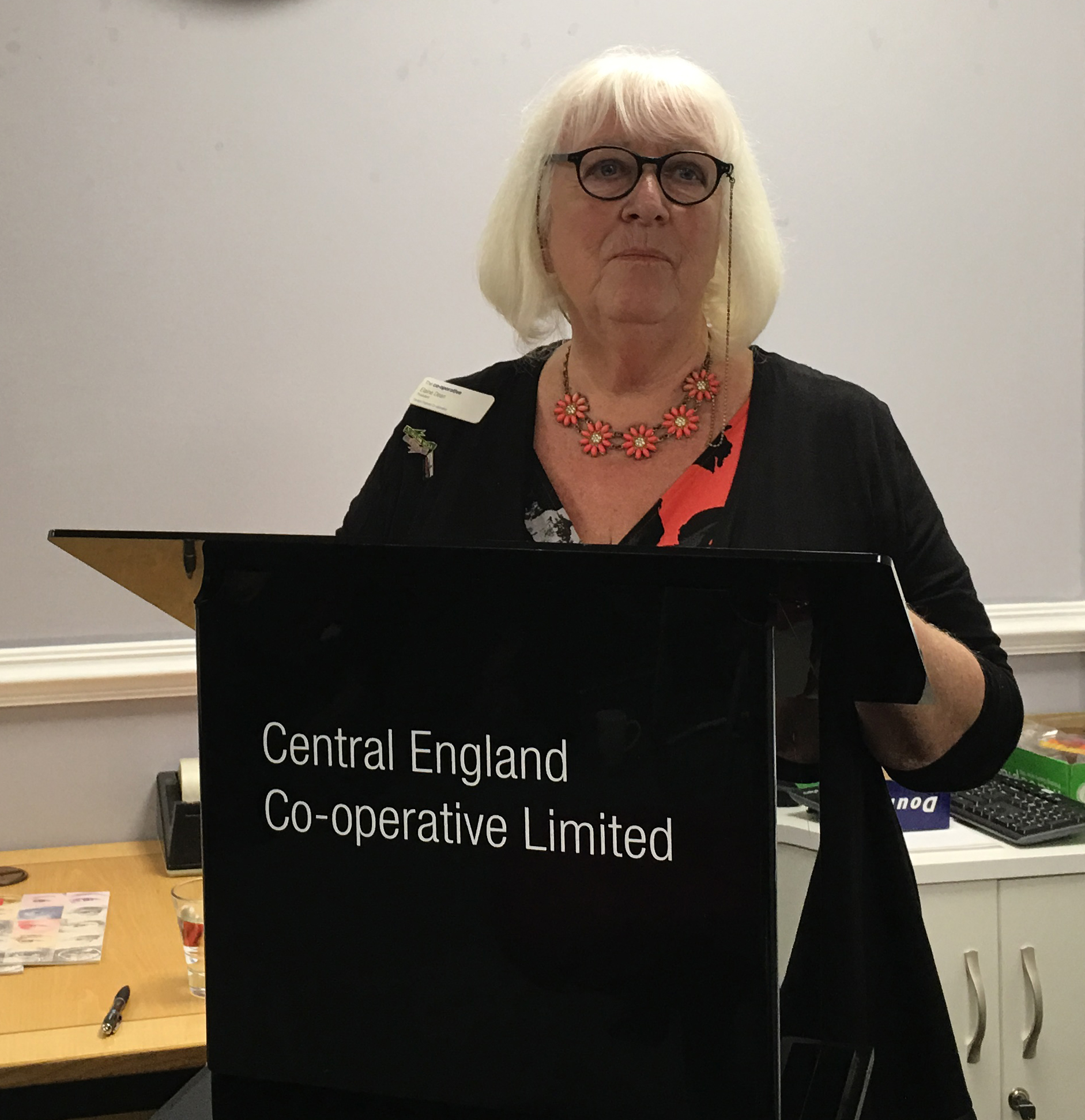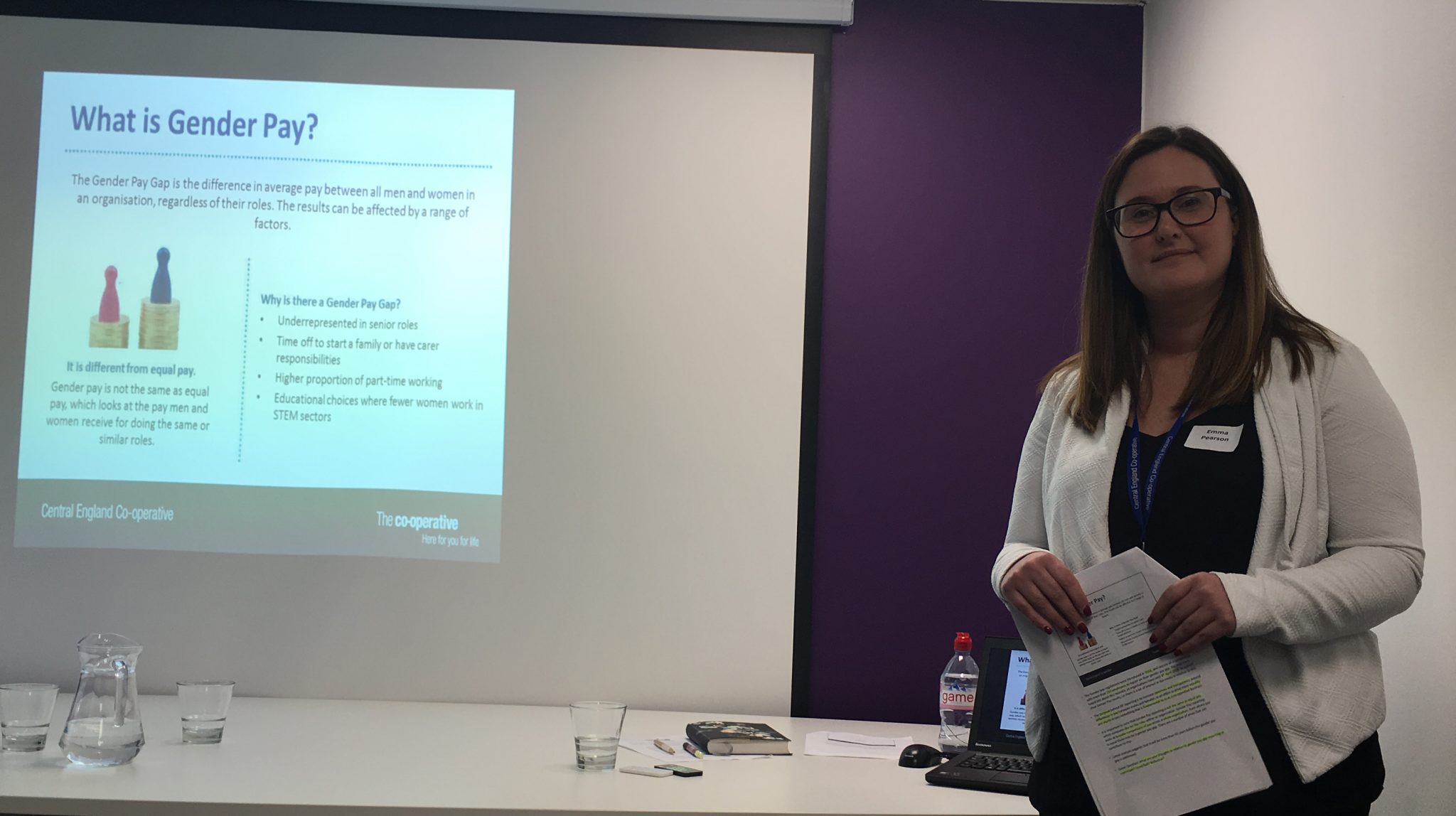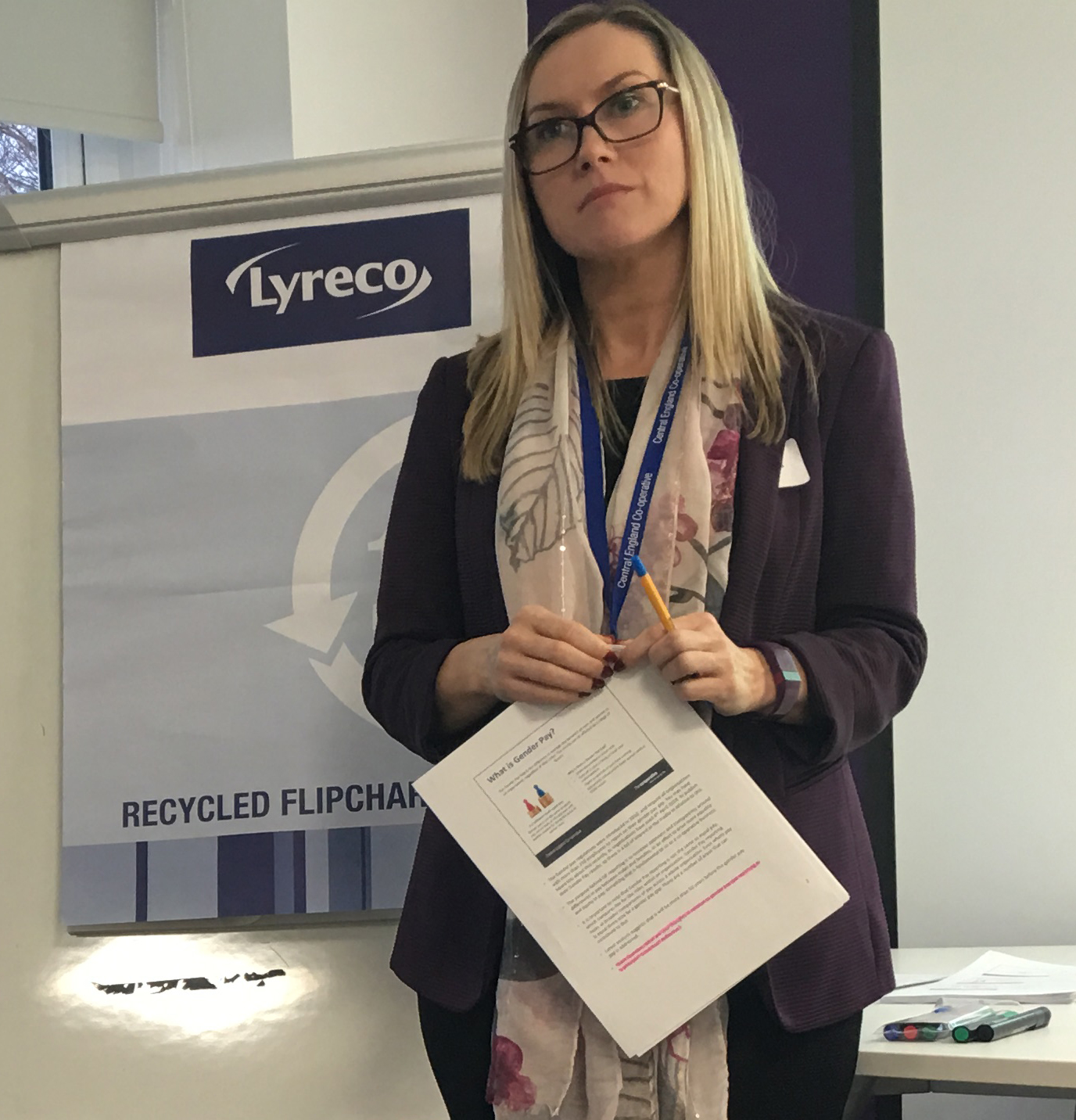What are the challenges women employees of co-operatives face? And how can co-ops ensure equal opportunities and pay for female colleagues? Women co-operators debated these questions at the third Co-operative Women’s Voices event, which was hosted by Central England Co-operative in Lichfield.
Welcoming delegates, Elaine Dean, Central England president, talked about her co-operative journey. Born into a family of co-operators, she became actively involved in her local Derby and Burton Co-op at the age of 28, when she joined the board of directors, while seven months pregnant.
A teacher by profession, she described how being on the board of the co-op gave her the chance to challenge executive decisions and made her determined to make changes in her personal life, ending an unhappy marriage marked by domestic abuse and asserting her independence.
“Everyone has made errors of judgment, everyone has made mistakes – some big, some small. We all have something as we go through life that has put obstacles in our way but it is how we deal with it and how we extricate ourselves that counts,” she said.
While on the board of the co-op, she received support from the other five newly elected male board members, who encouraged her to speak up in the boardroom with confidence. Elder female members on the board were not as welcoming, she said.

The boardroom experience played a key role in her life. She became comfortable addressing large public meetings, and later on became a magistrate. She is now married to a fellow co-operator who was elected on the board the same year as her, and says co-ops are in her DNA.
Tanya Noon, a director of Central England, gave examples of key campaigns led by women co-operators on the right to vote, to divorce law reforms, equal pay, peace or maternity benefits. Set up in 1883, the Co-operative Women’s Guild was also active in promoting peace, with women creating the white poppies in the 1930s.
While the Guild was dissolved back in 2015, women co-operators have continued to discuss issues through different platforms such as the Women’s Voices events.
Rebecca Harvey from Co-operative News gave an overview of the Co-operative Women’s Challenge and its aims.
Set up in 2012 by Co-operatives UK, the Co-operative Group and the Co-operative College, the Co-operative Women’s Challenge was a campaign that sought to ensure women are fairly represented at all levels within the co-operative movement by 2020. The group was re-launched in 2016 when Co-operative News joined the campaign. As part of this, 20 women from different co-ops were interviewed by the Co-operative College to share their experience and best practices.
“What came across is that women should not be lulled into a false sense of security,” said Ms Harvey. “Co-operatives should be innovating and leading the way in gender equality,” she said, encouraging all co-operative women to “use their voices”.

In a separate workshop Claire Williams, Central England HR business partner and Emma Pearson, Central England reward manager, explored the issue of the gender pay gap. In 2016 gender pay regulation was introduced, aiming to get transparency around differences in pay between males and females.
The gender pay gap is the difference in average pay between all men and women in an organisation, regardless of their roles. The gender pay gap is different from equal pay, which looks at the pay men and women receive for doing the same or similar roles.

One of the main reasons for the gender pay gap is the lack of women in senior leadership roles, with women taking time off and doing part time jobs to cope with family life.
Tracey Orr, Central England’s support services executive, is the highest-ranked woman in the organisation. In her presentation, she looked at some of the means in which women can be supported. She highlighted that women needed to be given opportunities to thrive and have colleagues in more senior roles make space for them, boosting their confidence and future progression.
In a separate session, Jane Avery, board member of Central England Co-op, engaged participants in a brainstorming exercise on the nature of power in a co-op. They highlighted that power needed to be earned and respected, not just supplied or inherited.

